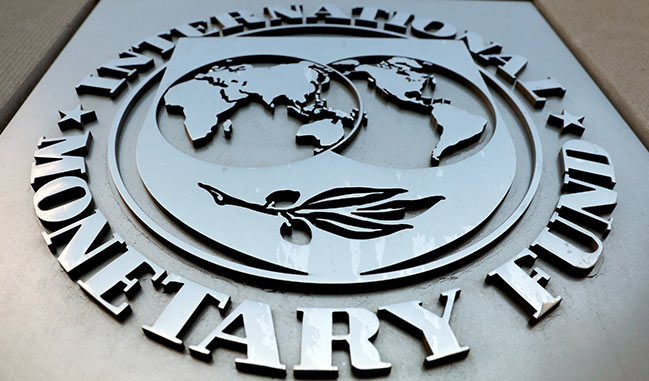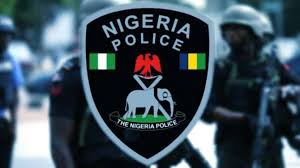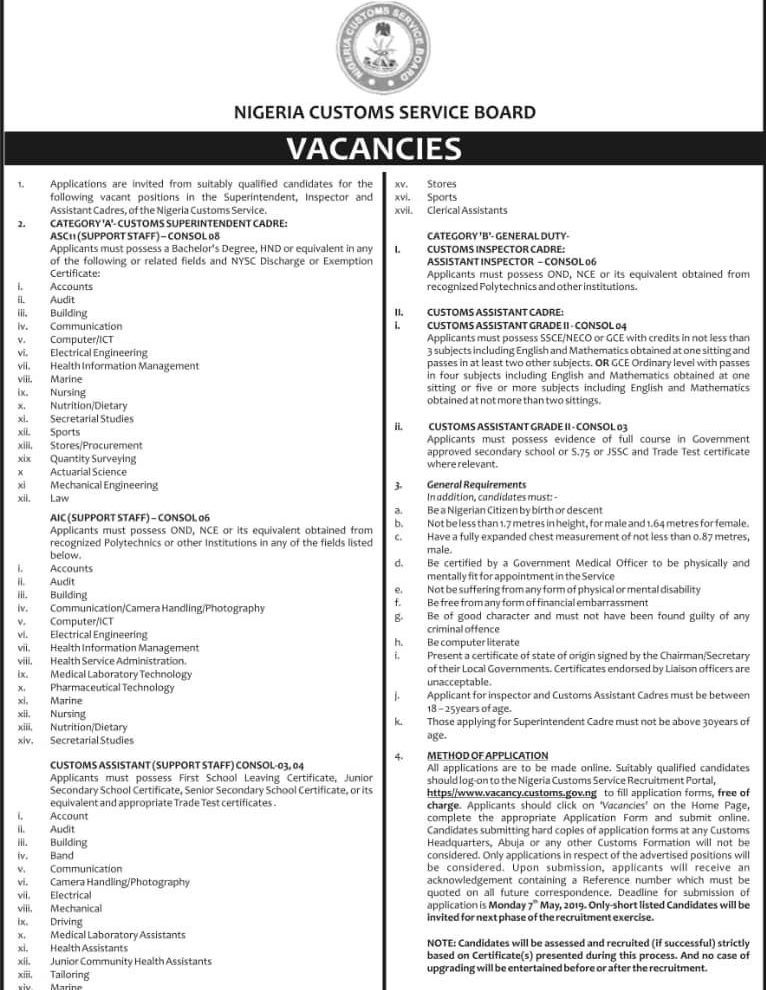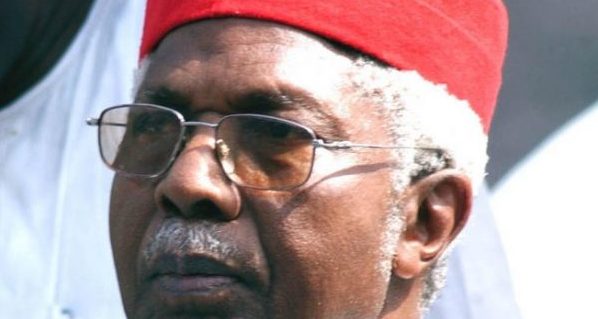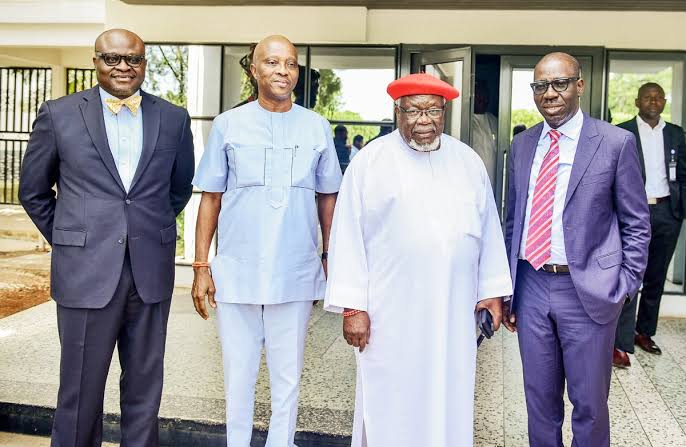When the 2019 World Bank and International Monetary Fund, IMF, spring meeting ended in Washington DC, United States last week, Nigeria’s delegation led by Central Bank Governor, Godwin Emefiele and Zainab Ahmed, Finance Minister, were left in no doubt that they still had a lot of work to do on the country’s economy.
Economic experts at the meeting, led by Chritine Lagarde, Managing Director, IMF, offered Nigeria some useful tips on putting the economy on the right track without bothering about the political correctness of what they had to say. The authorities also didn’t look at the sentiment that Nigerian leaders often share to gain cheap popularity among the people.
When Lagarde, for instance, reopened Nigeria’s subsidy debate by declaring that the country has to do away with subsidy on petroleum products, she ignored the argument that subsidy is a sensitive issue in the country as very many poor people depend on it to cushion the effects of poverty in the land. But behind the scene, fuel subsidy in the country has for long, been shrouded in controversy.
Lagarde was of the view that given the low revenue mobilisation in Nigeria, in terms of tax to gross domestic products, GDP, it was necessary to remove subsidy on petroleum products in order to free funds for the development of critical sectors like health, education and infrastructure. This will also help in reducing poverty as noted by the IMF in its 2019 Article IV Consultation on Nigeria.
“A real effort has to be made in order to maintain a good public finance situation for the country,” she averred. But that suggestion, even with the explanation offered by the Nigeria delegation on subsidy, triggered hording of products by marketers and panic buying by end users in major cities across Nigeria, just a few days after. The speculation by oil marketers was that government was about to hike prices of petroleum products, forcing users to form long queues at the filling stations.
The hypocrisy of the Nigerian government is well illustrated by the fact that President Muhammadu Buhari, long before he became president in 2015, vehemently opposed payment of petroleum subsidy under the previous administration of Goodluck Jonathan, describing it as a channel of siphoning public funds. However, under his administration, government’s annual expenditure on petroleum subsidy has risen to N1.4 trillion. Now, opposition forces are contending that Buhari, who said that subsidy was a scam, did not only increase the price of petrol from N87 to N145, payment of subsidy has also been sustained under his regime without explanation. In 2018 alone, the Nigerian National Petroleum Corporation, NNPC, the agency through which the government disburses petroleum subsidy, spent a total of N623.16 billion on subsidy, which it calls under recovery cost, over a period of 11 months.
READ ALSO: 2019 UTME: JAMB Arrests 2 Children of Centre Owner over Alleged Examination Malpractice
If the Nigerian government heeds the advice of the IMF, the country may in the next few years, witness a leap in infrastructural development, the educational and health sectors. But does it have any palliative measure to cushion the effects of high cost of petroleum product? The Nigeria Labour Congress, NLC, has issued strong warnings to the government against increasing the pump price of petroleum products. They can afford to do so and even issue threats of labour unrest as a consequence because of the absence of palliatives.
No doubt, critical sectors of the economy are in serious need of funding. In the health sector for instance, President Buhari had, in the early part of his administration, proclaimed that public office holders would no longer be allowed to embark on medical tours abroad. The shame of his administration is that four years down the line, he still visits the United Kingdom for medicals. That shows the huge gap in the sector while his administration continues to spend scarce resources on subsidy largely for political patronage.
Another lesson from the annual meeting, which cannot be ignored, is that the IMF warned Nigeria and other developing countries to beware of loans from China, pointing at the unfavourable condition of such loans. Tobias Adrian, Financial Counsellor of IMF, who is also Director of Monetary and Capital Markets, advised that capital flows including those from China are important for development. Although Nigeria’s rising debt profile has become a source of concern to many local economic analysts, the IMF says it is not overly concerned about the loans as it would allow the country to develop critical infrastructure. Last year, Nigerian authorities explained that they are attracted to loans from China in order to take advantage of cheap sources of fund. The country’s debt profile currently stands at about $60 billion. The figure had, in the last three years, risen by $11.77 billion, sparking outrage during a recent debate on the 2019 Budget at the senate.
To overcome mass unemployment and poverty, the IMF advised that Nigeria was also advised to, among other things, close the huge infrastructure gap, deal with low revenue mobilisation, weak governance, banking sector fragility and institutional weaknesses, which it believes are still discouraging investments and slowing down the economy.
In its April 2019 Fiscal Monitor Report, the IMF advised Nigeria to increase Value Added Tax, VAT. It also urged the country to increase and expand the Excise Duties net. Only recently, the Federal Inland Revenue Service, FIRS, was caught in a web of controversy, when its executive chairman, Babatunde Fowler hinted of a possible increase in VAT by the end of the year. Following the outrage that greeted the proposal, which was made before the Senate committee on finance, the revenue agency made concerted efforts in the media to douse the tension. VAT is equally a controversial issue in Nigeria as a huge chunk of the revenue comes from the south where luxury goods and alcoholic beverages are mainly consumed, but is distributed evenly among the federating units of the country. This may also be an issue if and when the government decides to increase VAT.
The World Bank sees Nigeria as a key regional player in West Africa, with a population of approximately 197 million. Nigeria accounts for about 47% of West Africa’s population, and has one of the largest populations of youth in the world. A federation that consists of 36 autonomous states, Nigeria is a multi-ethnic and culturally diverse society. With an abundance of resources, it is Africa’s biggest oil exporter, and also has the largest natural gas reserves on the continent.
